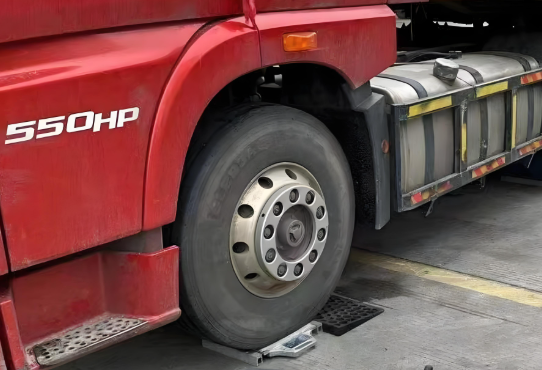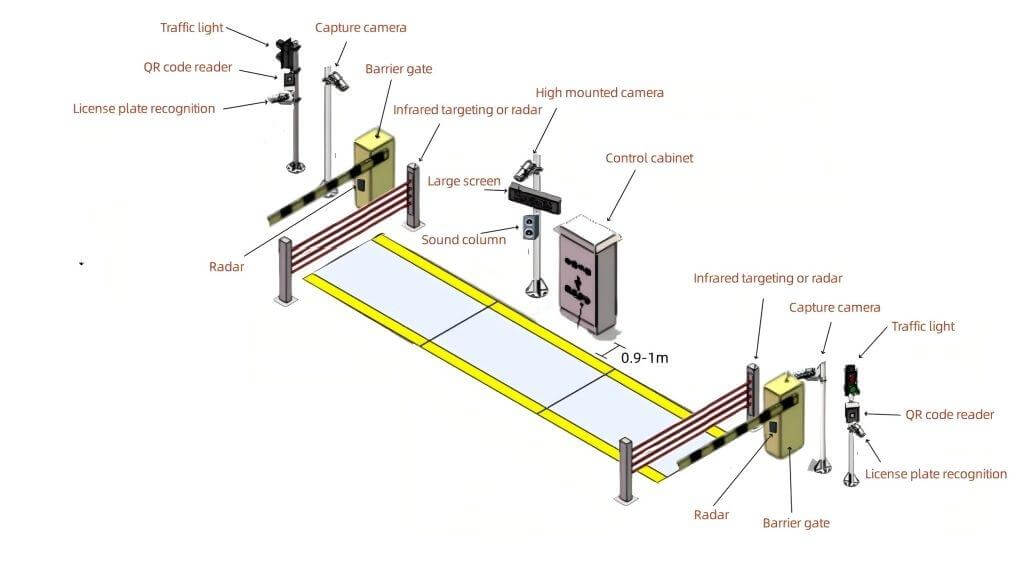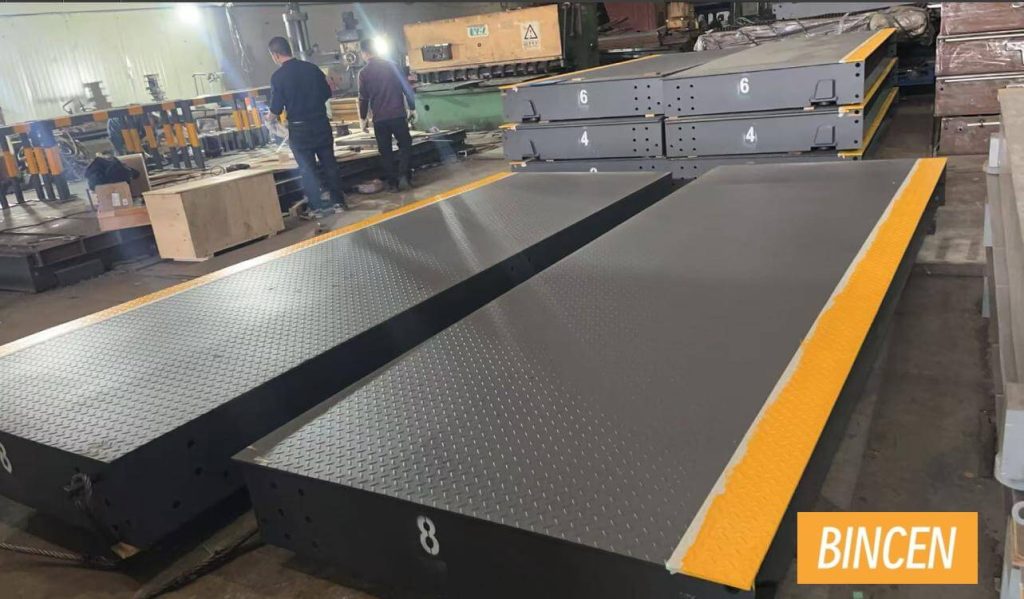What Happens If Overload Truck? And How to Prevent It?
What is an overload truck? Well, it refers to a truck that exceeds the specified weight limit, but this situation occurs frequently in the transportation industry. While overloading may improve transportation efficiency in the short term, its negative impacts should not be ignored.
In this post, we will explore the various issues related to overloaded trucks and share effective preventive measures. Let’s get started!

Part 1. What Happens If Overload Truck?
Overloaded trucks can lead to a variety of negative consequences, jeopardizing the safety of vehicles, roads, and the entire transportation system. Below are some common impacts caused by truck overloading:
1. Road Damage
Overloading accelerates the damage to roads and bridges. When a vehicle’s weight exceeds the road’s designed load capacity, prolonged overloading can lead to surface deterioration, bridge cracks, and other issues. This not only increases the cost of road maintenance but also raises the risk of accidents.
2. Vehicle Damage
Overloading puts excessive pressure on various parts of the truck. Prolonged overloading accelerates wear and tear, particularly to tires, suspension systems, and braking components. This not only shortens the truck’s lifespan but also increases the risk of mechanical failure, leading to higher repair costs.
3. Accident Risk
Overloaded trucks, due to their excessive weight, often face longer braking distances, poor handling, and slow acceleration. These factors make it harder for drivers to respond in emergency situations, thereby increasing the likelihood of traffic accidents.
Overloading can also lead to vehicle rollovers or other fatal accidents, putting the driver and other road users at risk.

4. Legal Regulations and Penalties
In most countries and regions, overloaded trucks are considered illegal and violations can result in severe penalties. While the specific overloading standards and penalties vary by region, the general legal rule is that the total weight of the truck should not exceed the specified limit. Potential legal consequences of overloading include:
- Fines: Drivers and transport companies may face hefty fines for overloading, and in severe cases, the vehicle may be impounded.
- License Revocation: In cases of severe overloading, the driver’s license may be revoked or temporarily suspended.
- Company Liability: Transport companies found to be engaging in overloading may face not only fines but also the revocation of business licenses, and damage to their reputation.
5. Environmental Impact
Overloaded trucks typically consume more fuel and emit higher levels of harmful gases. Due to the heavy load on the vehicle’s engine, overloaded trucks require more fuel to complete their transportation tasks, resulting in increased pollutant emissions.
This not only affects air quality but also contributes to higher greenhouse gas emissions, further exacerbating environmental problems.
Part 2. 8 Signs of Overload Truck
If the truck is not weighed during loading or transportation, you may not know the exact weight of the cargo or whether it is overloaded.
However, there are certain signs of overloading that can be identified, and being aware of these signs can help you ensure that the vehicle stays within the specified weight limits.
Reduced Handling and Stability: Overloaded trucks are harder to control, especially when turning or at high speeds, and may feel unstable on curves or uneven surfaces.
Longer Braking Distance: Excessive weight increases stopping distance, and the brakes may not respond as efficiently, indicating potential overloading.
Visible Sagging or Uneven Load Distribution: Overloading can cause the truck to sag in the rear or appear uneven, especially if the load is poorly balanced.
Tire Wear and Damage: Overloaded trucks experience abnormal tire wear, particularly on the rear tires, and may suffer from blowouts or overheating.
Excessive Engine Strain: An overloaded truck puts extra strain on the engine, causing overheating, irregular performance, or difficulty maintaining speed.
Suspension and Frame Stress: Overloading may cause the suspension system to bottom out, especially on bumps, indicating excessive weight.
Road Damage: Overloaded trucks leave deeper tire tracks, particularly on softer or asphalt surfaces.
Increased Fuel Consumption: An overloaded truck uses more fuel, leading to higher consumption compared to properly loaded trucks.

Part 3. How Much Weight Can Your Truck Carry?
Each truck is equipped with a maximum carrying weight, which is typically specified in the vehicle’s manual.
Generally, the maximum carrying weight of a truck includes both the weight of the cargo and the truck itself. Overloading not only damages the vehicle but may also violate traffic regulations and lead to legal consequences.
To ensure the truck is not overloaded, you can:
- Check the maximum weight specified in your truck’s manual.
- Regularly use truck scales or other equipment to check the actual weight of the truck.
- Follow the traffic regulations of the country or region to ensure that the truck’s load does not exceed legal limits.
Part 4. How to Prevent Truck Overload?
1. Use of Truck Scales
Truck scales are precise electronic weighing devices that help transportation companies ensure that trucks are not overloaded before loading cargo. By using truck scales at parking lots or freight stations, drivers can accurately check the truck’s weight before departure to prevent overloading.
Why Use Truck Scales?
- Improved Safety: By accurately weighing vehicles, transportation companies can prevent overloading, reducing the likelihood of traffic accidents.
- Reduced Road Damage: Avoid road damage caused by overloading, thus reducing road repair costs.
- Increased Operational Efficiency: By reducing overloading, vehicles can operate more smoothly, minimizing equipment malfunctions and repair costs, and extending the lifespan of the trucks.
- Compliance with Legal Requirements: Truck scales help transportation companies ensure that every shipment is within the legal weight limits, avoiding fines and penalties caused by overloading.

2. Regular Weight Inspections
Transportation companies should inspect trucks regularly to ensure they are not overloaded during transportation. By regularly weighing and monitoring, companies can prevent overloading issues caused by excessive weight.
3. Use of Electronic Weight Monitoring Systems
Modern electronic weight monitoring systems can help transportation companies monitor truck weight in real-time. These systems can accurately measure the vehicle’s weight and issue warnings in case of overloading, helping drivers adjust their cargo weight in time to avoid overloading.
4. Raising Driver Awareness
Enhance driver training and awareness by educating them about the dangers of overloading and the potential legal consequences. Only when drivers have the necessary knowledge and awareness can they effectively implement overloading prevention measures effectively.

Part 5. Who is Responsible if a Truck is Overloaded?
If an accident occurs due to overloading, who is responsible for it? Understanding this is crucial, as it not only raises awareness among you and other parties like transportation companies but also highlights the serious consequences of overloading.
By clearly defining responsibility, we can better avoid the risks associated with overloading, protect lives, and ensure that every transportation journey is completed safely and smoothly.
The responsibility for overloaded trucks is typically shared by the following parties:
- Truck driver
- Truck or trailer owner
- Distribution company
- Cargo owner
- Those responsible for loading and securing the cargo
- A combination of these parties
In cases where the at-fault party is an individual performing their job, such as the truck driver, their employer may also be held liable. Many laws allow victims to hold the trucking company or the employer responsible for any damages caused by their employee’s actions.
As a result, individuals who are injured in truck accidents often pursue claims or lawsuits against the trucking company or other companies involved.
Final Thoughts
Overloaded trucks are a serious safety hazard that cannot be ignored. They not only cause road damage and increase the frequency of accidents but also have environmental and legal consequences.
To prevent overloading, transportation companies and truck drivers must strictly follow regulations, regularly check vehicle loads, and use truck scales and other equipment to avoid the negative impacts of overloading. Ensuring that trucks are not overloaded not only protects public safety but also protects personal safety and economic interests.





